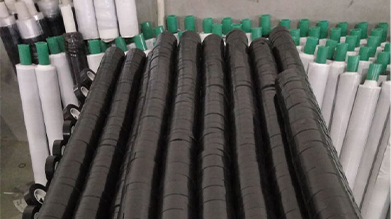High Voltage Busbar Insulation Tape Essential for Safety and Performance
In the realm of electrical engineering, especially in power distribution systems, the use of high-voltage equipment is commonplace. One crucial component within these systems is the busbar, which facilitates the efficient transmission of electricity. However, with high-voltage applications comes the need for effective insulation to ensure safety, reliability, and optimal performance. This is where high-voltage busbar insulation tape plays a critical role.
Understanding Busbars and Insulation Needs
A busbar is essentially a metallic strip or bar, often made of copper or aluminum, that conducts electricity within a substation or electrical panel. They are designed to handle substantial electrical loads and are integral to the functioning of power systems. However, due to the substantial voltage and current levels, the insulation used around these busbars must be robust enough to prevent arcing, short circuits, and other electrical failures.
High-voltage busbar insulation tape is specially designed to cater to these requirements. It provides a crucial barrier between the conductive metal of the busbar and its environment, significantly enhancing safety and system reliability.
Key Properties of High Voltage Insulation Tape
1. Dielectric Strength One of the foremost characteristics of high-voltage insulation tape is its impressive dielectric strength. This property determines the tape's ability to withstand high voltages without breakdown, making it ideal for high-voltage applications.
2. Thermal Resistance High operating temperatures in electrical systems can compromise insulation materials. Quality busbar insulation tape is engineered to endure elevated temperatures, ensuring that it maintains its integrity and performance over time.
3. Chemical Resistance In industrial settings, exposure to chemicals, oils, and solvents can be a concern. High-voltage insulation tapes are formulated to resist such substances, thereby preventing degradation of the insulation over time.
4. Flexibility and Conformability The ability to conform to different shapes and sizes is paramount for effective insulation. High-voltage insulation tape is designed to be highly flexible, allowing it to wrap around busbars and other irregular surfaces with ease, ensuring complete coverage.
high voltage busbar insulation tape

5. Flame Retardancy Safety is a significant concern in electrical installations. High-voltage busbar insulation tapes are often subjected to flame-retardant treatments, minimizing fire risks and enhancing safety standards in electrical applications.
Applications of High Voltage Busbar Insulation Tape
The applications of high-voltage busbar insulation tape are vast and diverse. Primarily, they are used in
- Electrical Substations To insulate busbars that connect transformers and switches. - Power Distribution Boards To ensure safe voltage levels within control panels. - Renewable Energy Systems In solar inverters and wind turbine generations to protect busbars from environmental factors. - Industrial Automation To safeguard various machinery that operates under high-voltage conditions.
Best Practices for Use
For optimal performance, adhering to best practices when using busbar insulation tape is vital
- Surface Preparation Ensure that all surfaces are clean and dry before applying the tape to enhance adhesion and effectiveness. - Proper Installation Follow manufacturer guidelines regarding the application technique; overlapping edges can bolster insulation integrity. - Regular Inspections Routine checks help identify any wear or damage to the insulation tape, allowing for timely replacement to prevent electrical hazards.
Conclusion
High-voltage busbar insulation tape is an indispensable material in the realm of electrical engineering and power distribution. Its ability to provide reliable insulation against high voltages, coupled with its thermal and chemical resistance, renders it vital for the safety and efficiency of electrical systems. As technology evolves and the demand for electrical power continues to grow, the importance of quality insulation materials cannot be overstated. Investing in high-voltage busbar insulation tape is essential not only for compliance with safety standards but also for ensuring the longevity and performance of electrical installations.
-
XIANGFAN Rubber Tape-Ultimate Solutions for All Your Insulation NeedsNewsJun.24,2025
-
XIANGFAN Rubber Tape-Protection for Industrial and Residential ApplicationsNewsJun.24,2025
-
XIANGFAN Rubber Tape: Superior Safety and Sealing for Demanding EnvironmentsNewsJun.24,2025
-
XIANGFAN Rubber Tape: Reliable Solutions for Every Electrical ChallengeNewsJun.24,2025
-
XIANGFAN Electrical & Industrial Tape: Powering Reliability Across IndustriesNewsJun.24,2025
-
XIANGFAN Electrical & Industrial Tape: Excellence in Every ApplicationNewsJun.24,2025
